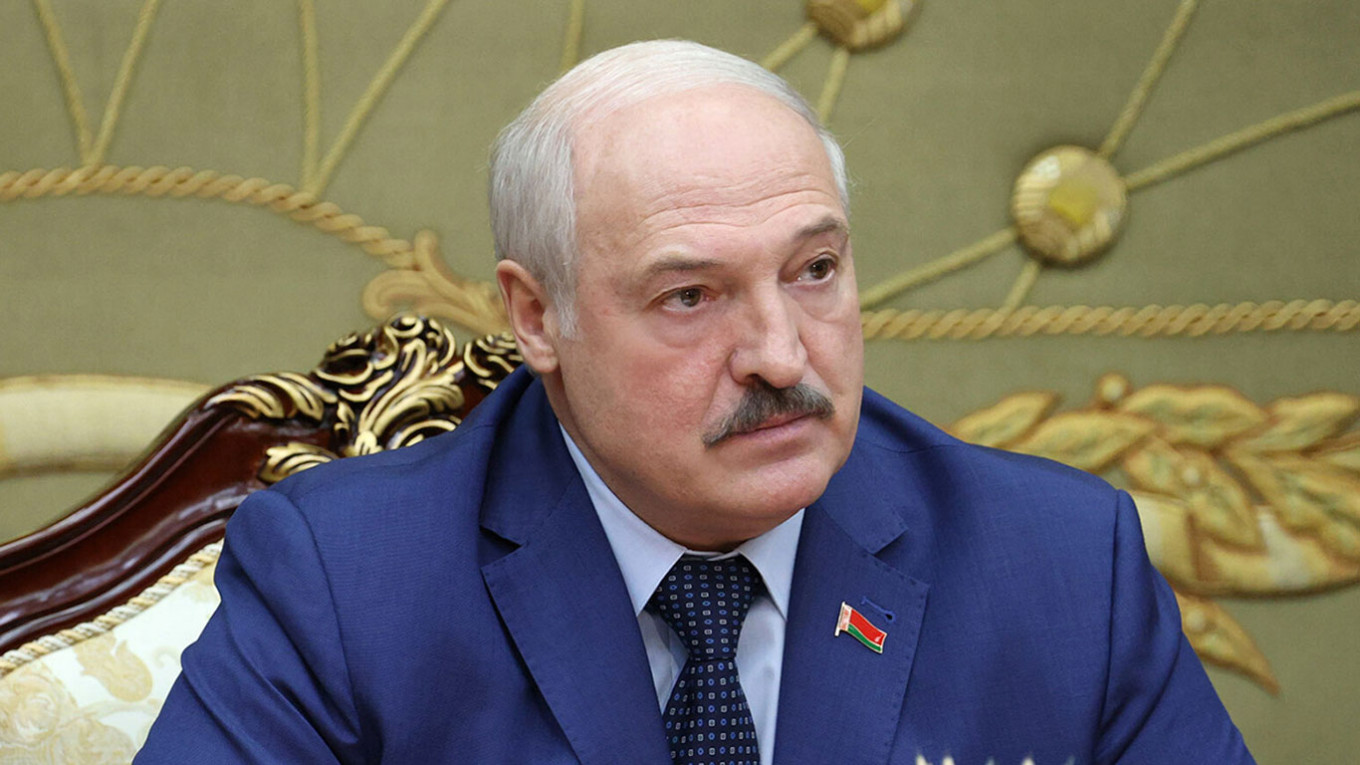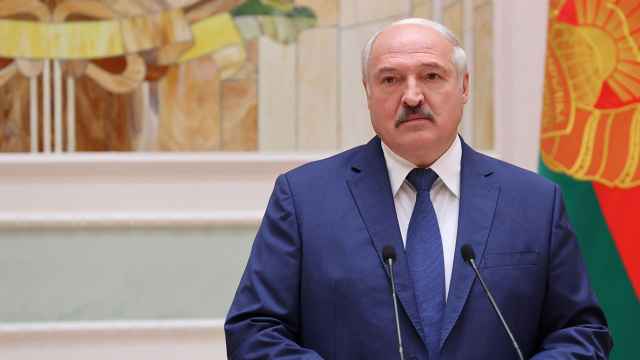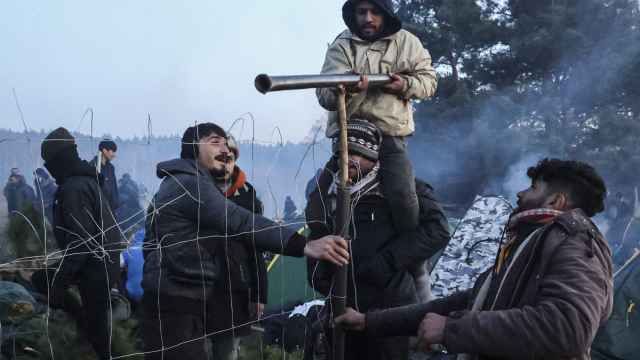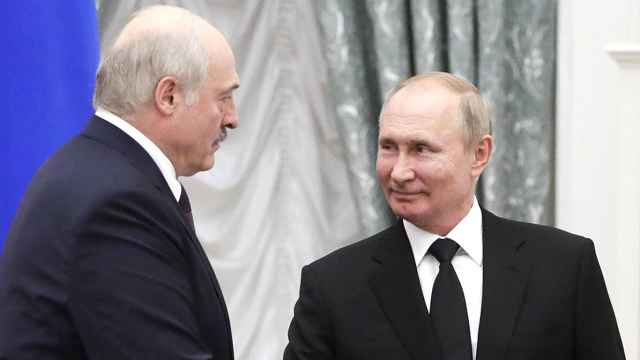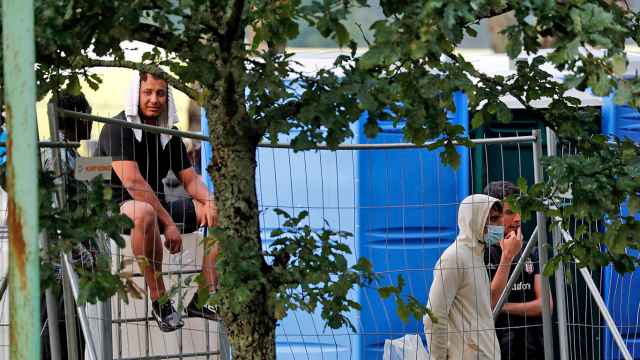Belarusian leader Alexander Lukashenko said Monday that the European Union was refusing to discuss the fate of 2,000 migrants wishing to go to Europe and stranded in Belarus.
The West accuses Belarus of bringing in would-be migrants — mostly from the Middle East — and taking them to areas along its borders with EU members Poland and Lithuania with promises of an easy crossing.
Belarus denies the claim, instead criticizing the EU for not taking in the migrants.
"I am waiting for the EU to respond on the issue of 2,000 refugees," Lukashenko told officials on Monday, adding that he expected Europe to let the migrants in.
"They said, (German Chancellor Angela) Merkel promised me that they will consider this problem at the level of the European Union. But they are not doing it," he said, quoted by state news agency Belta.
Lukashenko said European officials refused any contact on the subject despite calls from the Belarusian foreign minister.
"We should demand that the Germans take them in," Lukashenko said.
German government spokesman Steffen Seibert said Monday that Berlin made clear last week that was not acceptable.
"The idea that there could be a humanitarian corridor to Germany for 2,000 migrants... is not an acceptable solution for Germany or the EU," he said.
Earlier this month Belarus cleared a makeshift border encampment, sending 2,000 migrants to a nearby logistics center.
Last week Lukashenko and Merkel spoke by phone twice, discussing the migrant crisis and agreeing to maintain contacts.
The migrants, many fleeing war and poverty, have spent thousands to fly into Belarus on tourist visas. Once at the border, they are faced with squalid, freezing conditions.
The West accuses Belarus of engineering the crisis in revenge for sanctions slapped on Lukashenko's regime after its brutal suppression of protests against his rule.
The migrants say they want to get to Germany via Poland and Lukashenko has said that he is ready to send them there by plane if necessary.
A Message from The Moscow Times:
Dear readers,
We are facing unprecedented challenges. Russia's Prosecutor General's Office has designated The Moscow Times as an "undesirable" organization, criminalizing our work and putting our staff at risk of prosecution. This follows our earlier unjust labeling as a "foreign agent."
These actions are direct attempts to silence independent journalism in Russia. The authorities claim our work "discredits the decisions of the Russian leadership." We see things differently: we strive to provide accurate, unbiased reporting on Russia.
We, the journalists of The Moscow Times, refuse to be silenced. But to continue our work, we need your help.
Your support, no matter how small, makes a world of difference. If you can, please support us monthly starting from just $2. It's quick to set up, and every contribution makes a significant impact.
By supporting The Moscow Times, you're defending open, independent journalism in the face of repression. Thank you for standing with us.
Remind me later.


